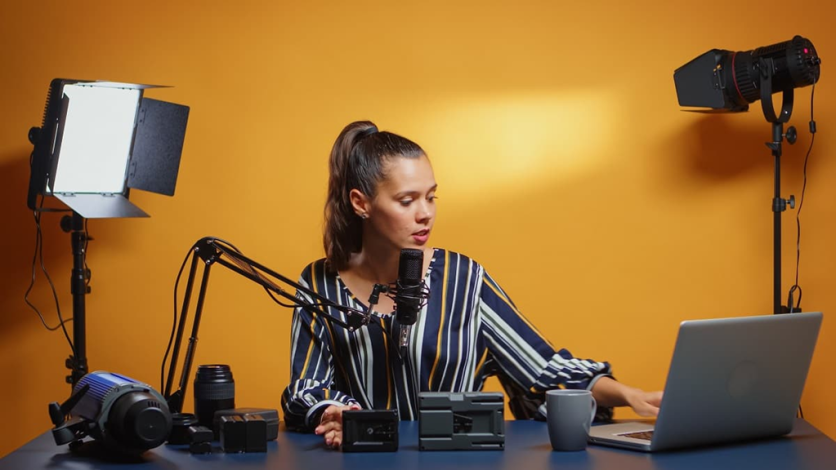
For too long, creators have been celebrated in metrics but dismissed in status. They outperform nearly every other media channel when it comes to impact, trust, and cultural relevance—and yet they remain undervalued in the broader conversation around business and influence.
Even the world's most prolific creator, MrBeast, who commands a bigger audience than any single Hollywood actor or traditional television network, is not accorded the same cultural weight or brand value as someone like Leonardo DiCaprio. This isn't just a media bias—it's a strategic blind spot. Brands, investors, and institutions continue to treat creators as a marketing channel, not as the new architects of the internet. And that needs to change.
Creators are not a niche. They're the future of discovery, commerce, and human connection.
Trust Is the New Reach
Unlike traditional celebrities who appear in pre-scripted campaigns or agency-crafted placements, creators spend years cultivating audience trust through direct, daily engagement. When they recommend a product, it doesn't feel like an ad—it feels like a friend making a suggestion. According to Edelman's Trust Barometer, younger generations increasingly see influencers as more trustworthy than CEOs, journalists, or politicians. That trust translates directly into action: when creators endorse something, people buy.
But it goes far beyond commerce. What creators are really driving is discovery. Most new brands, songs, platforms, and even political ideas are now surfaced via creators—not search engines, not corporate media, not algorithms alone. Whether it's TikTok creators breaking musicians into the mainstream or YouTubers selling out products in minutes, influence has shifted from institutions to individuals. The old gatekeepers don't decide what gets traction anymore—creators do.
The Creator Channel Outperforms Everything
This shift isn't a fluke. It's infrastructure. The entire architecture of the next internet will be creator-led. At a time when most traditional advertising is either ignored, skipped, or blocked, creator content gets watched, shared, and acted on.
Consider the difference between a $7 million Super Bowl ad and a MrBeast brand integration. One interrupts you for 30 seconds. The other is woven into a narrative that people choose to watch, remember, and share—generating tens of millions of views with a long tail of performance. Influencers don't just drive short-term sales. They create lasting brand association and cultural relevance.
Creators are media companies, editors, sales channels, and community engines in one. They're not just a surface-level media buy—they're full-stack brand architects.
Discovery Is Now Creator-Led
Every new product or cultural trend that finds breakout success today does so through creators. The funnel of discovery—once dominated by search engines, editorial gatekeepers, and ad campaigns—now runs through human beings with loyal audiences and strong editorial taste.
What's especially important in today's attention economy is that creators aren't just reaching audiences—they're guiding them. They are the curators of our digital lives. They signal quality, trust, and relevance in a flood of noise.
This shift is permanent. The next generation doesn't type queries into Google first—they check YouTube, TikTok, and Discord. They follow the people whose voices matter to them. They search through influence.
The Human Signal Is Becoming Priceless
At Luffa and Endless, we believe that as AI makes the cost of generating content approach zero, the value of human-generated signals will skyrocket. What AI can't replicate is human resonance—the sense of emotional authenticity and mutual trust between a person and their audience.
Creators don't just publish content. They generate culture. They host conversations. They launch movements. And increasingly, they create businesses. Think of Emma Chamberlain, who turned her audience into a product empire. Or Ben Francis, who grew Gymshark from a creator-powered movement.
In a world overrun with machine-generated noise, human-to-human influence will become the ultimate luxury. Creators are already living proof of this.
Respect, Infrastructure, and Ownership
Despite their power and impact, creators still don't have the infrastructure they need to scale sustainably. Most are subject to extractive platforms, opaque algorithms, and monetization systems that strip them of ownership.
At Luffa, we're working to change that by building a privacy-first platform for creators to own their data, their relationships, and their economic futures. Because creators aren't just an audience acquisition tool—they're entrepreneurs, artists, investors, and technologists rolled into one.
They need tools built with the understanding that they are businesses in motion, not just content feeds.
Creators Are Already Building the Next Internet
Many institutions still fail to take creators seriously—seeing them as flash-in-the-pan influencers, rather than enduring builders. But this dismissiveness is quickly becoming outdated. Creators are launching new brands, moving markets, shaping public opinion, and replacing legacy distribution models in nearly every industry, from fashion to finance.
They are not just media channels. They are ecosystems.
The world is being rebuilt by human beings who know how to gather other human beings and turn that connection into something meaningful. Whether that's commerce, art, education, or collective action, the power of influence is no longer institutional. It's individual.
Creators don't just deserve more respect. They deserve ownership of the tools, the infrastructure, and the platforms of tomorrow because they're already doing the heavy lifting of making this next era possible.
And they're not just participating in the future of the internet—they're defining it.
Professor Yu Xiong is Co-President of Luffa, and President and Chief Scientist of Endless Protocol, the only Web3 startup to reach unicorn status in 2025. He is Chair of Business Analytics and Associate Vice-President at the University of Surrey and has co-founded more than 40 innovation-driven companies globally.
ⓒ 2025 TECHTIMES.com All rights reserved. Do not reproduce without permission.




